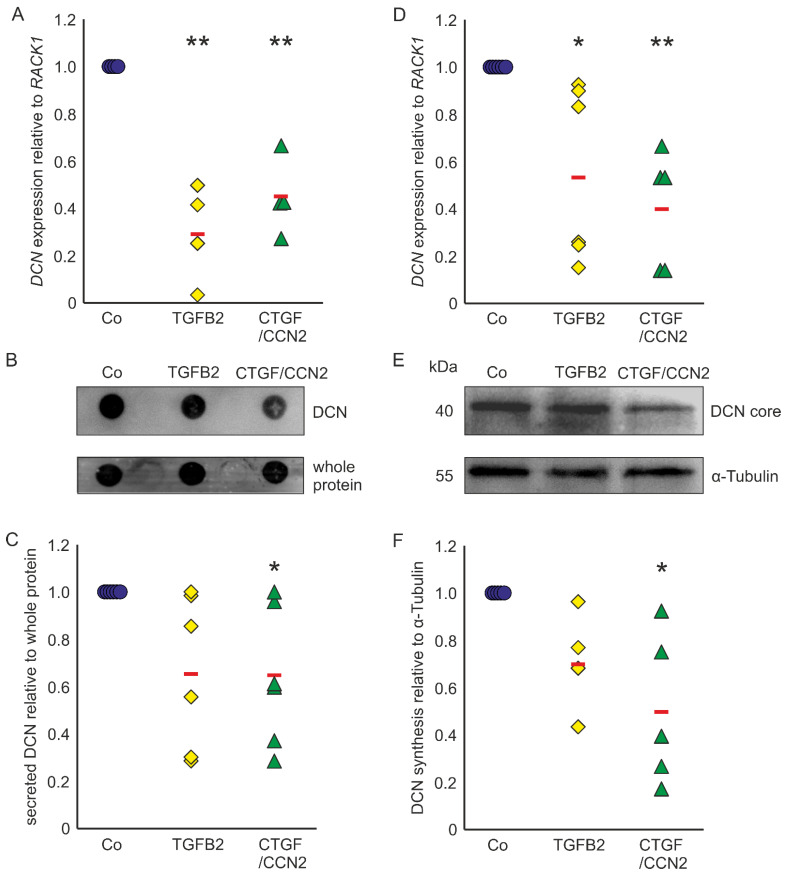Figure 3.
TGF-β and CTGF/CCN2 negatively regulate DCN in murine ON astrocytes (left) and human ONH astrocytes (right). (A) Treatment with TGF-β2 reduced DCN mRNA to 0.29 ± 0.22 (n = 4, p = 0.0003) and treatment with CTGF/CCN2 reduced DCN expression to 0.45 ± 0.16 (n = 4, p = 0.0019) in murine ON astrocytes. mRNA expression was normalized to RACK1. Expression in untreated controls was set to 1. (A) In the medium of murine ON astrocytes secreted DCN levels were at 0.66 ± 0.31 (n = 6, p = 0.089) after treatment with TGF-β2, while CTGF/CCN2 treatment significantly reduced DCN synthesis to 0.65 ± 0.26 (n = 6, p = 0.048). Secreted protein was normalized to whole protein, untreated controls were set to 1; (B,C). In human ONH astrocytes treatment with TGF-β2 reduced DCN mRNA to 0.56 ± 0.37 (n = 6, p = 0.0230) and treatment with CTGF/CCN2 reduced DCN expression to 0.40 ± 0.24 (n = 5, p = 0.0072). mRNA expression was normalized to RACK1. Expression in untreated controls was set to 1; (D) DCN protein levels were at 0.71 ± 0.11 (n = 4, p = 0.1861) after treatment with TGF-β2 (0.004 nM), while CTGF/CCN2 (3 nM) treatment significantly reduced DCN synthesis to 0.50 ± 0.18 (n = 5, p = 0.0129) in human ONH astrocytes (protein synthesis was normalized to α-Tubulin, expression in untreated control cells was set to 1); (E,F). Co = Control. *, ** are significant with p ≤ 0.05 or p ≤ 0.01.

